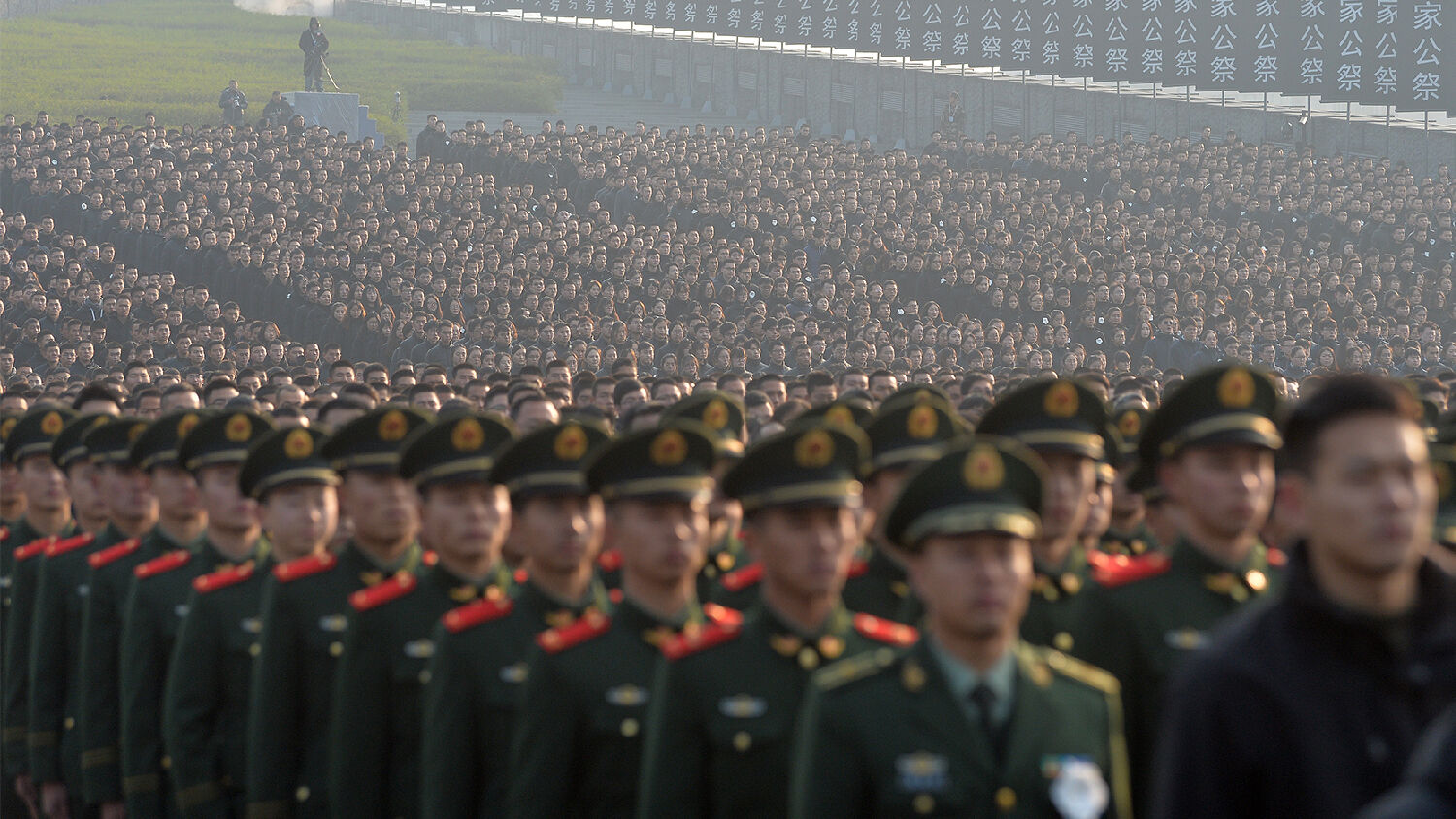
The Real Danger of the Pentagon’s New Indo-Pacific Plan
Simone Chun / CounterPunch
(March 29, 2021) — The Pentagon recently asked Congress for an astronomical $27 billion budget increase to support a massive military buildup in Asia as part of its new Indo-Pacific plan, which calls for a substantially more aggressive military stance against China.
With the US already ranking first in military spending worldwide and holding more than 290 military bases in the Asia-Pacific region alone, this aggressive buildup is being proposed at the most financially precarious moment in US history. According to the Congressional Budget Office report released this month, federal debt is projected to reach 102% of GDP by the end of 2021 before surpassing its historical high of 107% in 2031 and going on to nearly double to 202% by 2051. According to Doug Bandow, “Uncle Sam is headed toward insolvency.”
How can the Biden administration sell such an expensive foreign policy proposal to the American public in these economically depressed times? By publicly stoking moral outrage and militarism in the US — as well as throughout the Asia-Pacific region — in the name of launching a crusade ostensibly in defense of human rights. This strategy was on full display when Secretary of State Blinken echoed bipartisan political rhetoric about the “Chinese threat” during his visit to Asia last week. In a stream of condescending self-righteousness, he unleashed a deluge of recrimination against China and North Korea while pontificating on American exceptionalism.
Instead of taking a fresh direction on behalf of the new administration and sending a message that America’s top diplomat is intent on finding common ground in Asia, Blinken made clear that the Biden administration will hew close to the fundamentals that have guided the prevailing policy of containment reflected most recently in Bush’s Axis of Evil, Obama’s Pivot to Asia, and Trump’s confrontationalism.
Blinken’s performance seemed tailored to the US domestic audience; a rallying call to win support for the upcoming battle: selling the Pentagon’s costly Asian military buildup plan — and the unprecedented profits it represents for the US military industrial complex — to Congress and American public.
Unsurprisingly, US corporate media amplified Blinken’s message, exulting: “Blinken blasts aggressive China, North Korea’s systematic and widespread rights abuses.” At the same time, Blinken and his team have been hard at work in reinforcing an anti-China stance among their lynchpin Far Eastern military outposts — South Korea and Japan — by ensuring that the respective governments of these garrison states continue to unswervingly toe the US line with regard to Beijing.

But even if the administration succeeds in selling its new crusade to Congress and American public, the unprecedented buildup being proposed would have its most devastating consequences at home, rather than in far-flung military theaters.
Firstly, its demand for enormous spending on expensive weapon systems would exacerbate America’s financial insolvency. The administration’s proposal includes nearly $5 billion in the next year alone for new missile defense systems and nuclear-capable naval craft as part of an aggressive forward-deployed military strategy that profits weapons manufacturers like Lockheed Martin and General Dynamics.
Secondly, it will engender a human rights crisis at home, much in the same vein as the Red Scare during the Cold War and the War on Terror did. Public support for the Indo-Pacific plan will depend on amplifying to the extent possible the threat from the East using time-tried methods of demonizing “threatening Others”, such as China, North Korea.
As militarism, racism and xenophobia go hand in hand, this will inflame anti-Asian sentiment and scapegoating — a trend that is already well under way due to bipartisan political rhetoric about origins of Covid-19 and the rise of China. Anti-Asian sentiment has already risen to unprecedented levels in 2020, with crimes against Asians increasing by more than 150% in the past year.
If the Biden administration truly cares about a moral order in Asia, it should take global leadership to address the formative role that US militarism has played in the current state of Asian affairs. The foremost opportunity to embark on an alternative to the path of war lies in the Korean Peninsula, where the US continues to exert overwhelming economic and military pressure in the wake of a brutal war that claimed some 5 million lives, over half of whom were non-combatant Korean civilians.
The staggering civilian cost of the Korean war far exceeded the non-combatant death rate of both WWII and the Vietnam War, and amounted to more than 10% of the entire Korean civilian population. US refusal to sign a formal peace agreement with the North means that the 70-year old conflict has never officially ended, leaving scores of Koreans — including some 100,000 Korean-Americans — separated from their loved ones in the North.
The Biden administration can begin down this alternative moral path by supporting bipartisan Congressional bills such as the Enhancing North Korean Humanitarian Assistance Act and the Divided Families Reunification Act, both of which would go a long way toward generating goodwill with North Korea without giving up any strategic advantage whatsoever on the part of Washington. Such symbolic but significantly humanitarian acts of goodwill would garner support from allies while earning the trust of “foes,” and would mitigate the risks of military confrontation, financial insolvency, and human rights crises at home and abroad.
Resources
• National Immigrant Solidarity Network http://www.ImmigrantSolidarity.org
• ActionLA Network http://www.ActionLA.org
• Peace NO War Network http://www..PeaceNOWar.net
• Activist Video Service http://www.ActivistVideo.org
• China-US Bi-National Activist Solidarity Network http://www.chinadelegation.org
Posted in accordance with Title 17, Section 107, US Code, for noncommercial, educational purposes.